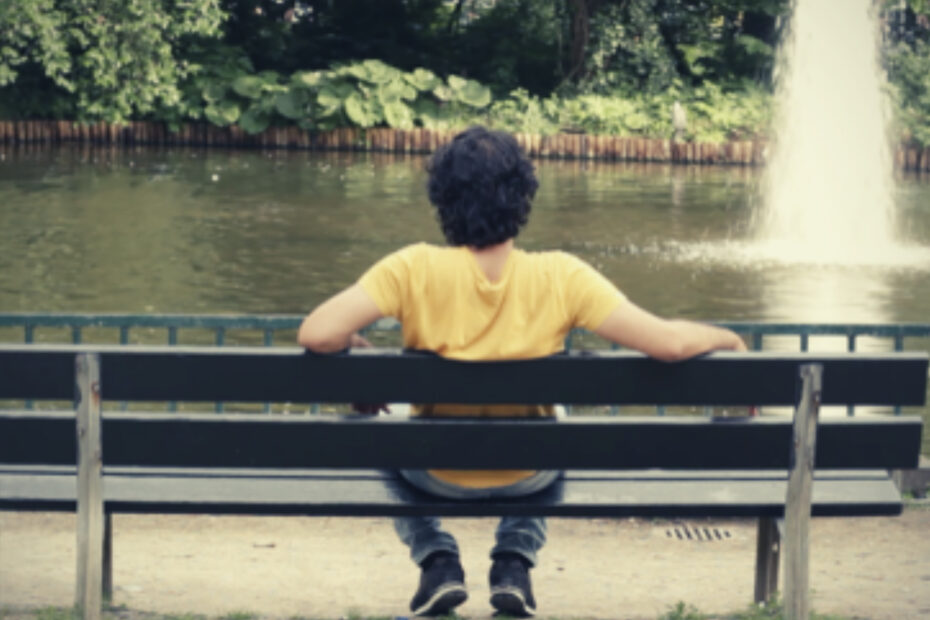A few years ago, we met a man called Ali. Initially, the problems and trauma that he experienced caused him to consistently feel sad and he cried often. However, then he began to share these feelings with us and suddenly he was coming two, then three times, four times a week to Road of Hope, to have the chance to be heard and vocalise these feelings. He started to open up more about his trauma, about the people he lost during the war, including parents and brothers, and about all the problems that he experienced here during his integration. One day, he turned and said to us “look if I hadn’t come here, I’d have become a dog on the street or killed myself”. Now Ali is hopeful for the future. It was interesting to note that, as a single young man without any family, all he needed was to be listened to. One day, he arrived completely broken but now, all people see is the progress he has made and a man that has regained his self-confidence; through focusing on the future, Ali was able to rebuild not only his life, but himself..
According to the Health Council, loneliness amongst refugees in the Netherlands is a key cause of psychological distress; the isolation often causes refugees to get stuck within their own mind with no outlet for their thoughts and feelings, which have been severely affected by the traumatic experience of migration. The loss of strong communities, the language barrier and unemployment all contribute to this feeling of isolation within their new country.
Yet, Road of Hope’s work targets this loneliness and together we have been able to and will continue to successfully combat this isolation, through providing and creating opportunities for integration into Dutch society. We focus on the psychological side of integration, providing safe spaces to talk and emotionally connect with others.

Breath of Hope truly kicked off in February with us holding weekly meetings to provide a safe place for refugee women to express themselves and talk about issues facing them. These have helped the participants to feel like they have someone there to talk to, once again fighting against loneliness in the refugee community. These will continue throughout the year and we are very excited to see the progress that these women have and will make.

Hospitality is highly valued in the majority of eastern cultures. They love to welcome people into their homes and to sit around the table to talk about “little cows and little calves” as the Dutch would say. Beyond the delectable food, home visits are a very effective method to combat loneliness. This month, we have conducted ten home visits already. These visits help Road of Hope create a genuine personal connection to the refugees we work with, getting to know them in their own homes and listening to their concerns. Each of these refugees were then invited to join our Reflection Groups as part of our Breath of Hope programme, guiding them through the emotional journey of integration.

Road of Hope’s crucial work could not occur without the dedication and invaluable contributions of our wonderful volunteers, upon which the organisation is highly reliant. Currently there are eleven individuals volunteering for our cause, working a wide variety of roles including leading reflection groups, teaching Dutch classes, organising events and visiting refugees in their homes.
When asked about what motivates them to work with Road of Hope, our volunteers all replied that they wanted to help refugees in some way or another, contributing to their successful integration into Dutch society. They want to learn more about refugee issues, make personal and emotional connections and to positively contribute to the refugees’ lives. On a practical level, volunteering also offers personal development for the volunteers themselves, learning new skills and knowledge.
On the 8th of February we held our volunteer training day where all our amazing volunteers got together for a day of learning and fun. It was a great chance for everyone to get to know each other and learn more about refugees in Amsterdam, including the difference between refugees and asylum seekers, the emotional trauma that is caused by forced displacement and a broader description of what is happening in the countries that these refugees are from. Volunteers also learnt more about the work of Road of Hope, such as the Breath of Hope programme and the home visits. The day was an undeniable success and many new friends were made!

